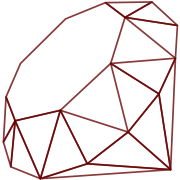Another of Ruby's idiosyncrasies is equalness. It's not too complicated, but naming is an issue here.
Four Concepts of Equalness
equal? Object Identity Comparison
This one is easy. Two objects should be considered identical. Think: x.object_id == y.object_id
== Equality Equality
This is the usual method to care about. Two objects should be treated the same. If the class supports the <=> spaceship comparison operator, it is expected that == returns true for the same values, <=> returns 0 for.
eql? Hash Key Equality
Normally, this is the same as ==: "…eql? is usually aliased to the overridden == method"
The most important effect of the result of eql? is to distinguish between hash keys: "Two objects refer to the same hash key when their hash value is identical and the two objects are eql? to each other". A real life example:
1 == 1.0 # => true
1.eql?(1.0) # => false
# this means that the following will be treated as two different keys
{1: "Idiosyncratic", 1.0 "Hash"}
So eql? is a little stricter than ==, because it will return false if two objects are not instances of the same class. A typical implementation looks like this:
def eql?(other)
instance_of?(other.class) && self == other
end
=== Fancy Equality
Implicitly used for case statements. Usually like ==, but can also mean that something has some kind of relationship, like being some kind of a class.
Equality Implementations for Core Classes
| Class | eql? |
== |
=== |
|---|---|---|---|
| Object | Identity (like equal?) |
Same as eql? |
Same as == |
| Symbol | - | - | - |
| Numeric | Same type, same value | Same value, according to spaceship returning 0 |
- |
| String | Same length, same contents | If other is a String: eql?, else: other.to_str === self |
- |
| Regexp | If other is a Regexp: Same pattern, same options, same encoding | Same as eql? |
If other is a String: Match against self |
| Array | Same length, every element .eql? corresponding other element |
Same length, every element == corresponding other element. Will implicitly convert other object via .to_ary |
- |
| Hash | Same length, every element == corresponding other element (order not relevant) |
Same as eql? |
- |
| Module | - | - | other.is_a?(self) |
| Class | - | - | other.is_a?(self) |
Meaning of -: Not defined / Use Object's implementation
Best Practices for Sub Classes
- Define a meaningful
==which returnstrueif two objects should be considered the same - Make
eql?return the same value==, but also limit it to return onlytrueif both object are instances of the same class - Don't redefine
equal? - Be creative with
===(On a reasonable level. Other people using your code expect it to be some kind of useful relationship check)
Also See
More Idiosyncratic Ruby
- Please Comment on GitHub
- Next Article: US-ASCII-8BIT
- Previous Article: Try Converting
